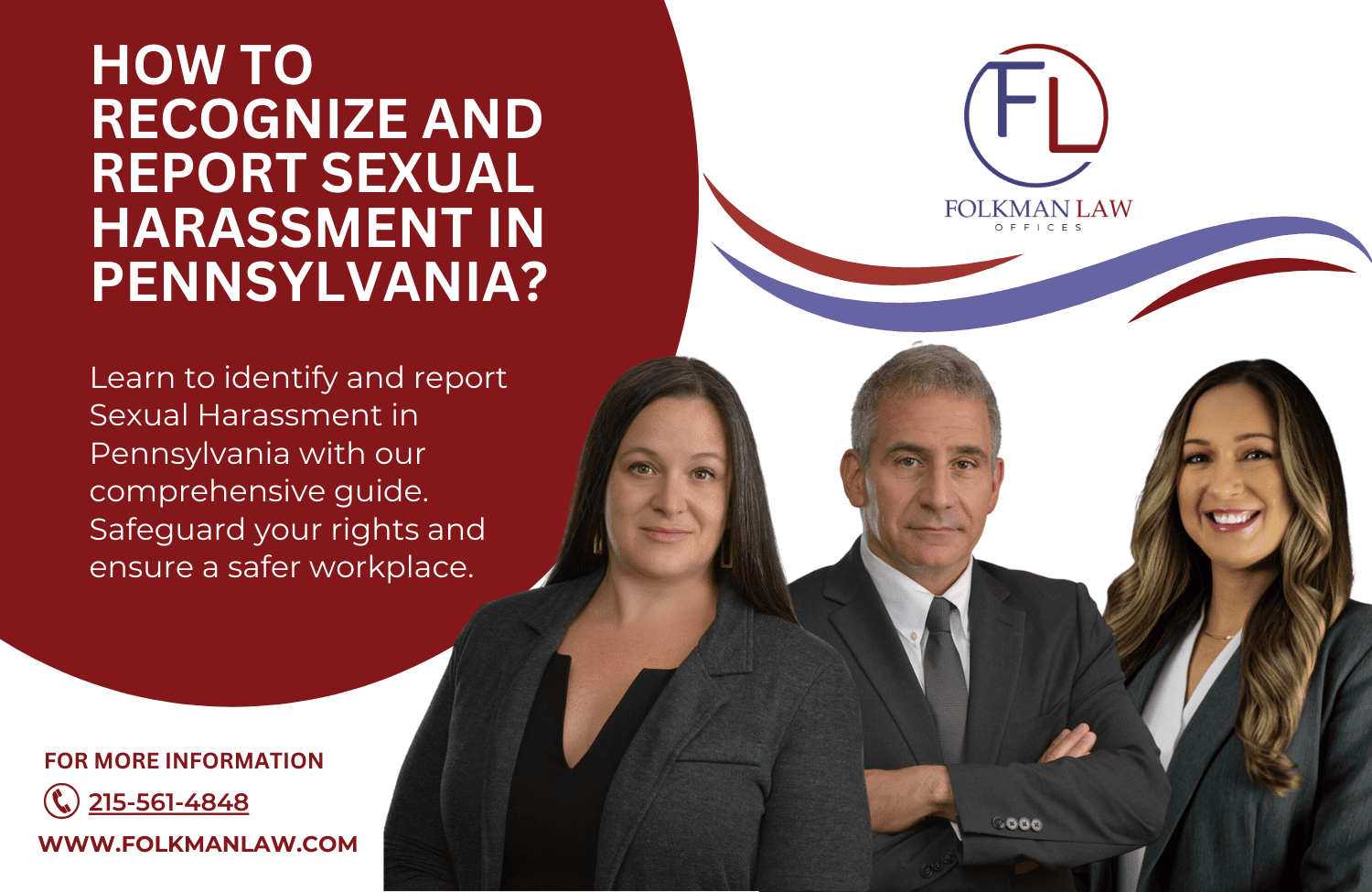Here’s an overview:
- Introduction to Sexual Harassment Laws in Pennsylvania
- Defining Sexual Harassment: Legal Standards and Examples
- The Scope of Sexual Harassment: Who is Protected?
- Employee Rights: Understanding Pennsylvania’s Workplace Protections
- Federal vs. State Law: How Title VII of the Civil Rights Act Applies
- Statute of Limitations: Timing Your Complaint in Pennsylvania
- Prevention and Education: Employer Responsibilities in Preventing Sexual Harassment
- Support and Resources: Seeking Help Beyond the Workplace
- Empowerment Through Understanding Your Rights
Introduction to Sexual Harassment Laws in Pennsylvania
At Folkman Law, we’re dedicated to helping you navigate the complexities of sexual harassment claims with understanding and professionalism. In Pennsylvania, sexual harassment is considered a form of sex discrimination under the Pennsylvania Human Relations Act (PHRA). It is also addressed in federal laws like Title VII of the Civil Rights Act 1964. As you navigate your work environment, it’s crucial to understand your rights and the legal definitions of sexual harassment, which can include:
- Unwelcome advances or requests for sexual favors
- Other verbal, nonverbal, or physical conduct of a sexual nature
- Conduct that affects your work performance or creates an intimidating, hostile, or offensive work environment
The enforcement of these laws is handled at both the state and federal levels, providing multiple avenues for seeking help and filing complaints. Folkman Law is your ally in the fight against sexual harassment. With our experienced legal team, you can navigate the legal system confidently.
Defining Sexual Harassment: Legal Standards and Examples
Sexual harassment in Pennsylvania is unwelcome sexual physical advances or remarks that affects your work environment or employment. It falls into two categories:
- Quid Pro Quo: This refers to situations where an employee is offered something beneficial, like a promotion, a desired assignment, extra vacation days, or any employment benefit, in exchange for a sexual favors that crosses the line into sexual harassment.
- Hostile Work Environment: This refers to situations where the working environment is made hostile because of its sexual nature. A Pennsylvania employee may have a claim for hostile work environment sexual harassment if the employee’s work environment is made intolerable by photographs, comments, jokes, or other acts of an offensive sexual nature, including physical touching or attempted rape.
Examples include:
- Unwanted advances or physical touching
- Suggestive comments or “jokes” about sex
- Displaying sexually explicit photographs, magazines, or videos
- Emailing sexually explicit content
- Offering employment benefits in exchange for sexual favors
Understanding these definitions helps you recognize when to take action.
The Scope of Sexual Harassment: Who is Protected?
In Pennsylvania, sexual harassment protections are inclusive. Regardless of your job status, whether you are a full-time, part-time, temporary, or at-will employee, you are covered under the state’s anti-harassment laws. It is important to know that anti-discrimination laws at both state and federal levels, including Title VII of the Civil Rights Act of 1964, offer you protection. Additionally, Pennsylvania law prohibits retaliation against anyone who reports or intervenes in instances of harassment, ensuring that your rights are supported when taking action.
Employee Rights: Understanding Pennsylvania's Workplace Protections
In Pennsylvania, as an employee, you are entitled to a workplace free from sexual harassment. Relevant laws include:
- The Pennsylvania Human Relations Act (PHRA), prohibits discrimination based on sex, including sexual harassment.
- If the employer has 15 or more employees, federal protections under Title VII of the Civil Rights Act apply.
Understand your rights and report any infringement to ensure a respectful and compliant workplace environment.
Federal vs. State Law: How Title VII of the Civil Rights Act Applies
When you face sexual harassment in Pennsylvania, understand that Title VII of the Civil Rights Act is a federal law that protects against discrimination and harassment in the workplace. As a federal law, Title VII:
- Applies to employers with 15 or more employees, including federal, state, and local governments.
- Prohibits harassment based on sex, which the Supreme Court has interpreted to include sexual harassment.
- Allows you to file a complaint with the Equal Employment Opportunity Commission (EEOC).
However, Pennsylvania state laws might offer broader protections, and you should also review those when addressing harassment issues.
Statute of Limitations: Timing Your Complaint in Pennsylvania
In Pennsylvania, it’s crucial to act promptly if you’ve experienced sexual harassment. You should be aware of the following time constraints:
- Pennsylvania Human Relations Act (PHRA): You generally must file your complaint with the Pennsylvania Human Relations Commission (PHRC) within 180 days from the date the harassment occurred.
- Title VII of the Civil Rights Act of 1964: For federal claims, you generally have 300 days from the date the harassment occurred to file a complaint with the Equal Employment Opportunity Commission (EEOC).
- Civil Lawsuit: If you’re considering a civil lawsuit, Pennsylvania state law generally allows 2 years from the incident to take legal action.
Missing these deadlines may prevent you from pursuing your case, so it’s important to act swiftly to protect your rights and seek recourse for the harassment you’ve faced.
Prevention and Education: Employer Responsibilities in Preventing Sexual Harassment
As an employer in Pennsylvania, you must create a workplace free from sexual harassment. This involves implementing comprehensive policies that clearly define what constitutes unacceptable behavior. You should:
- Establish Clear Policies: Develop and enforce a sexual harassment policy. Make sure it is well communicated to all employees.
- Conduct Training: Provide regular training to educate employees about their rights and responsibilities. Training should also clarify reporting procedures.
- Foster a Safe Reporting Environment: Ensure employees feel safe to report incidents without fear of retaliation.
- Respond Promptly: Take immediate action upon receiving a complaint. This includes investigating allegations and taking appropriate disciplinary measures if necessary.
- Review Policies Regularly: Update policies and training as laws change or as new best practices are identified.
This proactive stance is a legal necessity and essential in cultivating a respectful and safe workplace culture.
Support and Resources: Seeking Help Beyond the Workplace
If you’re dealing with sexual harassment, it’s important to know you’re not alone. At Folkman Law, we understand the impact of sexual harassment on your career and well-being. Our experienced legal team is committed to providing the support and guidance to address these issues effectively. Connect with us to learn how we can assist you in upholding a respectful and safe work environment.
There are other numerous resources you can reach out to for support:
- National Sexual Assault Hotline – Access confidential support from a trained staff member by calling 1-800-656-HOPE (4673).
- Pennsylvania Coalition Against Rape (PCAR) – Find local counseling and advocacy services at pcar.org.
- Victim Assistance Program – Reach out to your county’s program for help with legal advocacy and counseling.
- RAINN – Use the online chat service for immediate support at online.rainn.org.
Remember, seeking support is a step towards healing and regaining control. Don’t hesitate to use these resources.
Empowerment Through Understanding Your Rights
Folkman Law is your ally in the fight against sexual harassment. With our experienced legal team, you can navigate the legal system confidently. In becoming well-informed about your rights, you equip yourself with a powerful tool against sexual harassment. Awareness is the first step towards ensuring a safe environment for yourself and others. By understanding the legal frameworks in place, such as Pennsylvania’s laws regarding sexual harassment, you can confidently recognize, oppose, and report inappropriate behaviors. Remember, your knowledge is a safeguard that empowers you to navigate through professional and social settings with the assurance that you can protect your rights and dignity.
FAQ's
What constitutes sexual harassment under Pennsylvania law?
Sexual harassment in Pennsylvania is defined as unwelcome sexual advances, requests for sexual favors, and other verbal or physical conduct of a sexual nature that interferes with your work performance or creates an intimidating, hostile, or offensive work environment. This can include quid pro quo situations or behaviors contributing to a hostile work environment.
Who is protected against sexual harassment in Pennsylvania?
Protections against sexual harassment in Pennsylvania extend to all employees, regardless of their job status (full-time, part-time, temporary, at-will). They also include students, interns, volunteers, and independent contractors. Pennsylvania law and federal laws like Title VII of the Civil Rights Act of 1964 ensure comprehensive protections.
Can my employer retaliate against me for filing a sexual harassment complaint?
No, both Pennsylvania law and federal laws protect against retaliation. It is illegal for an employer to retaliate against an individual for reporting sexual harassment or for participating in an investigation, proceeding, or litigation related to sexual harassment.



